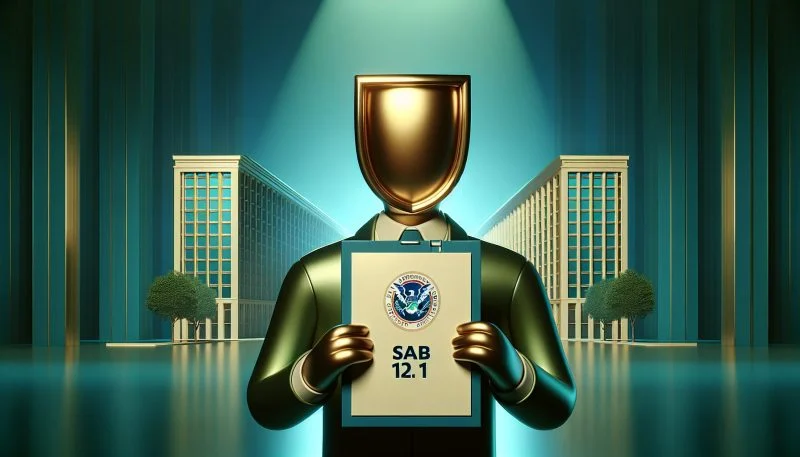Repealing SAB 121: A Crucial Step for Crypto Regulation Reform

Quick Take:
- SAB 121, a memo from the SEC, mandates banks to include digital assets on their balance sheets, hindering their involvement in crypto custody.
- The process of implementing SAB 121 was flawed, lacking consultation with banking regulators and circumventing standard regulatory procedures.
- The US House of Representatives passed a bipartisan resolution to repeal SAB 121, highlighting the need for congressional oversight in digital asset regulation.
Gary Gensler’s tenure at the Securities and Exchange Commission (SEC) has been marked by a contentious relationship with the cryptocurrency industry. Under his leadership, the SEC has consistently imposed regulatory barriers on digital assets, undermining the potential for sensible regulation in this burgeoning sector.
One particularly concerning action by the SEC is the issuance of Staff Accounting Bulletin 121 (SAB 121). This memo, while seemingly innocuous, has significant implications for the treatment of digital assets by publicly traded banks. SAB 121 mandates these banks to include digital assets on their balance sheets, contradicting the traditional practice of holding custodial assets off-balance sheet.
As a consequence of SAB 121, banks have been hesitant to enter the crypto custody space. Despite their expertise in providing custodial services for traditional financial assets, the regulatory uncertainty surrounding digital assets has deterred their involvement. This reluctance poses a risk to American investors and hampers the development of a robust crypto custodial infrastructure.
The recent approval of bitcoin Exchange-Traded Products (ETPs) further underscores the challenges posed by SAB 121. These ETPs often rely on custodians outside of the banking sector, raising concerns about the security and oversight of digital asset custody. If Chair Gensler is committed to safeguarding retail investors, addressing this issue should be a priority.
Moreover, the process through which SAB 121 was implemented is deeply flawed. The SEC failed to consult with banking regulators before issuing the bulletin, demonstrating a lack of coordination and foresight. Furthermore, by circumventing standard rulemaking procedures and opting for a bulletin instead, the SEC bypassed crucial checks and balances in the regulatory process.
Fortunately, there is hope for reform. The US House of Representatives recently passed a bipartisan resolution, H.J. Res. 109, aimed at repealing SAB 121 under the Congressional Review Act (CRA). This bipartisan effort reflects growing recognition of the need to reevaluate the SEC’s approach to digital asset regulation and restore congressional oversight.
As the Senate prepares to consider H.J. Res. 109, stakeholders across the crypto industry are hopeful that this resolution will signal a shift towards more sensible and inclusive regulation. Repealing SAB 121 is not only crucial for the future of the digital economy but also for ensuring the safe custody of cryptocurrencies and protecting the interests of American investors.



